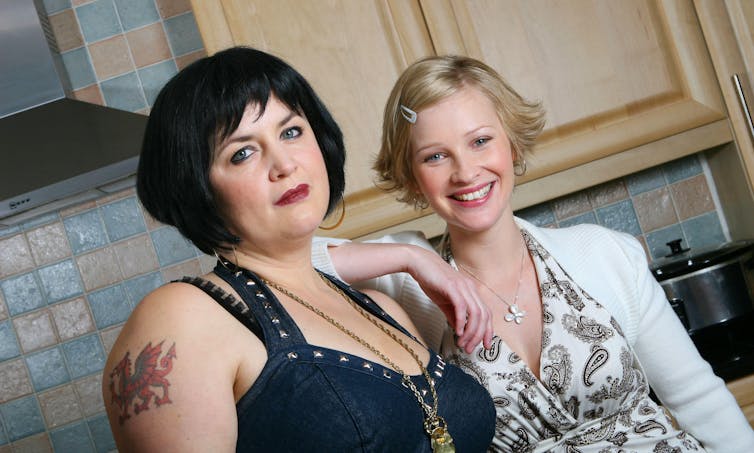One of the more unexpected plot twists on the latest series of the BBC’s The Traitors was contestant Charlotte revealing that despite being from London, she was putting on a Welsh accent to seem more trustworthy to her fellow contestants.
Leaving aside the fact that, if she gets found out, faking her origins will hardly inspire confidence among her peers, has Charlotte stumbled upon a reasonable strategy? Are Welsh accents genuinely perceived as trustworthy?
Before getting into the details of how people view Welsh accents, it’s important to underline that our attitudes to accents in general – whether positive or negative, widespread or personal – are merely perceptions. No accent is intrinsically smarter, friendlier, or more trustworthy than any other. No accent is inherently dishonest or unintelligent either. When we judge someone by their accent, we are engaging in a form of stereotyping.
As a sociolinguist, I’ve been researching the accents and dialects of English spoken in Wales for more than a decade. In one study, I examined several thousand tweets featuring the words “Welsh” and “accent” to explore what people were saying about the Welsh accent and their attitudes towards it.
I found that most people tweeting viewed the Welsh accent very favourably, often commenting on its friendliness and attractiveness. Only a few said anything negative about it. While none of the tweets explicitly mentioned trustworthiness, research on language attitudes frequently finds that traits like friendliness, honesty and kindness are strongly linked.
Looking for something good? Cut through the noise with a carefully curated selection of the latest releases, live events and exhibitions, straight to your inbox every fortnight, on Fridays. Sign up here.

BBC
In that respect, Charlotte’s strategy could be a good one. But Welsh accents are not unique in having these positive associations. Surveys and studies consistently find that Yorkshire (or broadly northern English) accents, Scottish accents and Irish accents also score highly for attractiveness and trustworthiness.
In contrast, received pronunciation, also known as the “King’s English” and commonly called “posh English”, scores highly for intelligence, education and wealth, but tends to be viewed as less friendly. Accents linked to industrial and working-class cities often rank lower for positive traits.
But this perception is shifting as more regional accents gain prominence in films, television and other media. For example, Peaky Blinders has notably improved perceptions of the Birmingham accent.
With the various London accents, such as cockney, multicultural London English and estuary English, attitudes to each of them differ.
Returning to Wales, my results also showed that although there are many distinct Welsh accents (not to mention the variety within the Welsh language itself), most people outside of Wales are primarily familiar with accents from the south Wales valleys or Barry. Other Welsh accents are less widely recognised.
Gavin and Stacey
This is partly due to media representation. You can’t discuss Welsh accents in the UK without mentioning the BBC sitcom Gavin and Stacey. In many ways, the show, which aired from 2007 to 2010 (with Christmas specials in 2019 and 2024), solidified the idea of what certain Welsh accents sound like for people outside of Wales.
Many of the tweets I studied referenced the show directly, with phrases like “What’s occurring?” (often uttered by the character Nessa in a Barry accent) frequently appearing.
Read more:
Gavin and Stacey’s final episode: why it’s so hard for fans to say goodbye
The association of Welsh accents with positive traits extends beyond television and social media, as linguistic attitudes can have economic effects as well. Several companies, including Starling Bank and Veezu, the transport booking app, have based their call centres in Wales to tap into the friendly associations with the accent.
Together this evidence confirms that perceptions of the Welsh accent are broadly positive in the UK and that people are likely to associate the accent with friendliness and trustworthiness.

Collection Christophel/Alamy
Does this mean Charlotte’s strategy in The Traitors is a winning one? Yes and no. While the positive connotations of having a Welsh accent might give her an advantage, it’s not her natural accent. And some fans of the programme have accused Charlotte of “appropriation”.
In a game where contestants are constantly on the lookout for signs of deceit, maintaining a fake accent is a risky move. Our language is deeply tied to our identity and emotional state. In moments of stress or high stakes, it’s challenging to maintain an unnatural way of speaking. If Charlotte slips back into her native London accent under pressure, it could raise suspicions and ultimately undermine her strategy.



